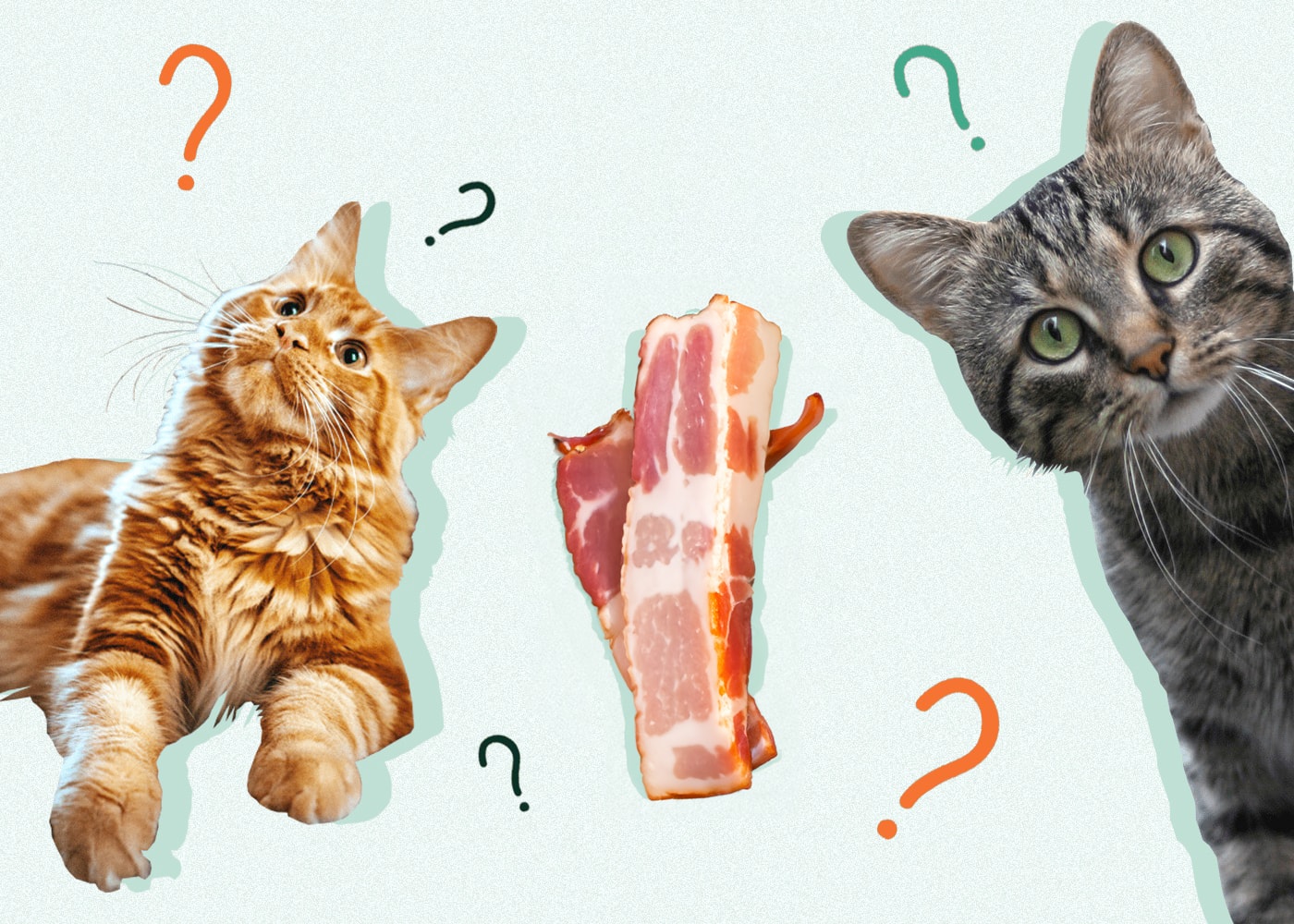Cats love to eat meat, and owners will feed their cats a lot of meat, so did you know that cats can eat bacon? Today I will tell you whether cats can eat bacon.
In This Article
Can cats eat bacon?
Can cats eat bacon? First of all, if you want to understand this matter, you need to consider whether cats can eat pork. Because traditional bacon is made from cured pork. So can cats eat pork? For many years, many people have been convinced that they don’t know where they found it. “Cats can’t eat pork” is a saying. But in fact, many cat foods contain pork ingredients. So it’s actually a rumor that cats can’t eat pork.
Since cats can eat pork, it is not life-threatening. What about bacon? Usually the vet says you can only eat small bites, and only occasionally. While sodium and fat make bacon delicious, excess sodium can cause health problems for your cat. Generally speaking, owners must be understanding of a cat’s indulgent behavior when less than 10% of a kitten’s daily diet comes from treats. Because cats in this situation will slam their forks while their owners eat bacon and eggs, owners may feed their cats some meat to prevent this behavior from continuing.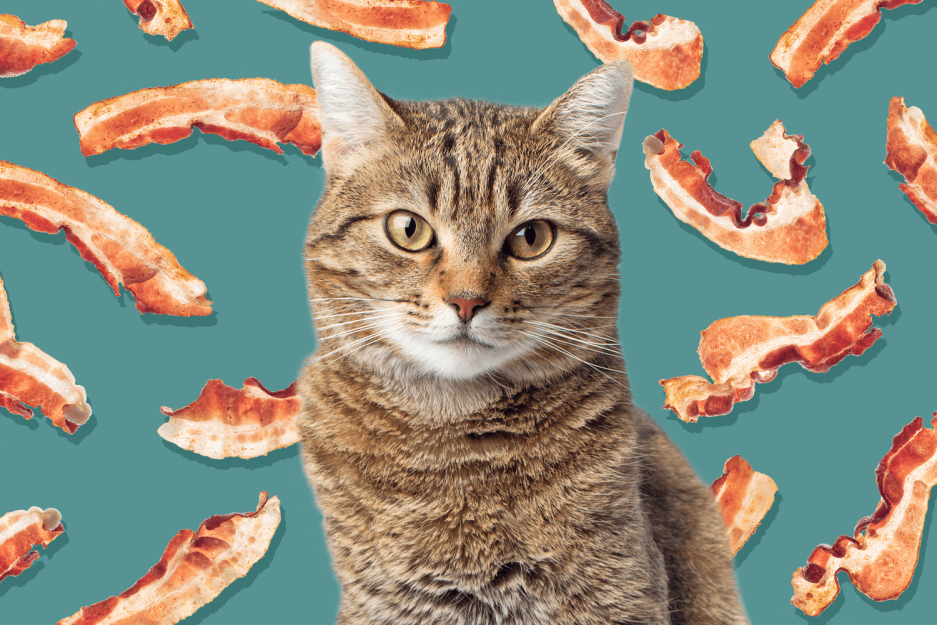
So to cure it, you can feed your cat a small amount of bacon. Felines are obligate carnivores, which means they are born to eat meat and get most of their nutritional needs from it. This includes important amounts of protein and an essential amino acid called taurine, which is essential for maintaining many healthy functions in cats, including their hearts and vision.
Is bacon safe for cats?
Standard pork bacon contains complex B vitamins and nutrients like selenium and zinc, so every slice of bacon has a little bit of goodness. Renee Rucinsky, DVM, Doctor of Veterinary Medicine, owner of Mid-Atlantic Cat Hospital and Feline Thyroid Center in Queenstown, Maryland, says cats can eat cooked bacon in moderation, but keep in mind that this means no additional seasoning. or nitrates. None of that honey BBQ or black pepper stuff. Or anything flavored with onions or garlic, which are toxic to cats. In addition, cats should not eat foods containing caffeine, such as chocolate.
So while cats can eat bacon in moderation, you need to be aware of its high fat and sodium content. Salt has a high sodium content, which can cause severe hair loss in cats. With this in mind, sticking to your cat’s veterinarian-recommended foods and treats may be a better choice.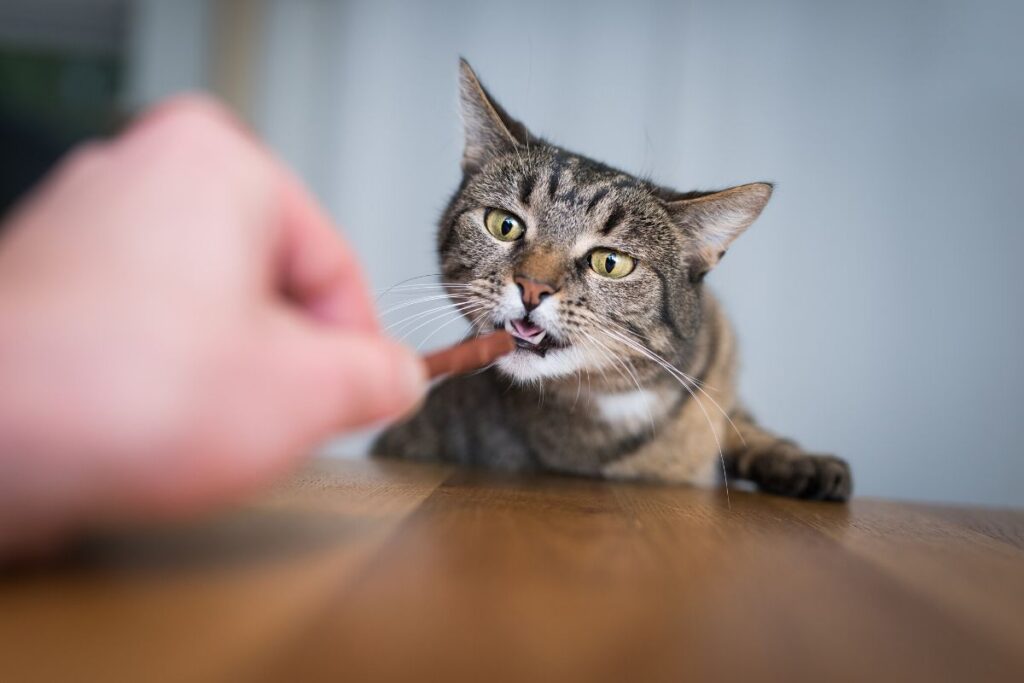
Can my cat eat raw bacon?
In fact, cats are unlikely to eat raw bacon. First of all, bacon is a pickled and smoked meat product. Many owners think that bacon, like ham, is cooked meat and can be eaten directly by cats. However, generally, bacon slices on the market are not cooked. It is half-cooked or medium-cooked, not fully cooked. Although some people can eat it directly, it is not very good for cats. And there is a risk of parasitic bacteria invading the intestines.
Cats’ intestines and stomach are very fragile. Therefore, it is usually not recommended. Feed your cat raw bacon. Raw bacon slices can be eaten grilled, boiled, fried, or stir-fried. If you are worried that these methods are not good, you can just cook them with water and feed them to your cat. However, pay attention to the sodium content of bacon. It is not recommended to feed cats too much or for a long time.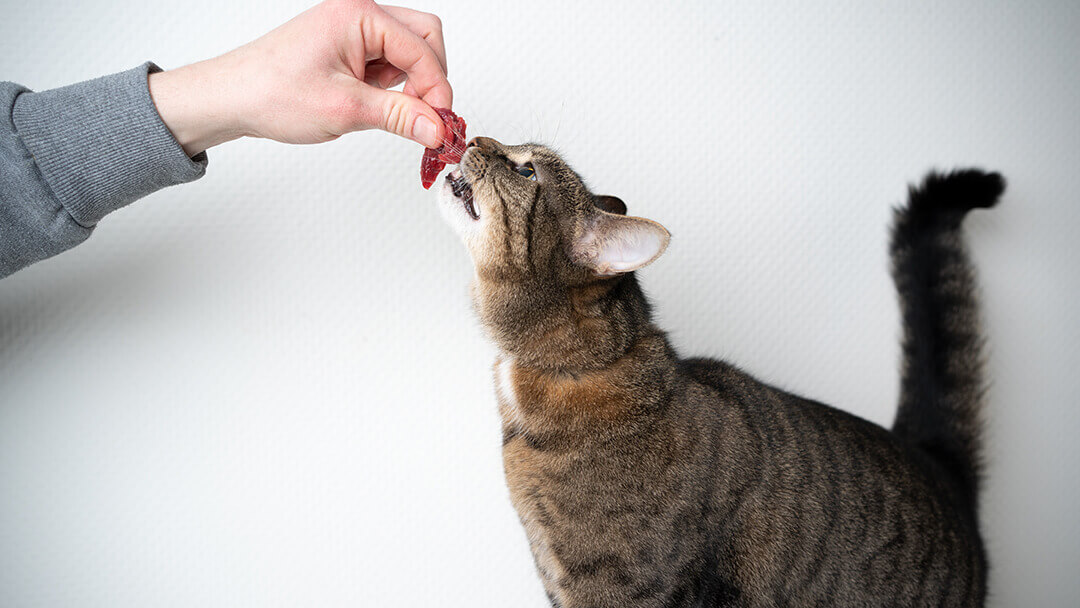
So try to keep your cat away from raw bacon slices and never let your cat eat raw bacon. While cats require a daily intake of minerals such as chloride, salt, and potassium, their needs can be met with carefully formulated cat food. Generally speaking, healthy adult cats do not need a lot of sodium in their food, even only a few dozen milligrams.
What about turkey bacon?
Through research, it seems that turkey bacon is healthier than regular pork bacon in every way. However, objectively it is still not a healthy food, either for humans or cats. Some also believe that given the perception that turkey bacon is healthy, people may actually be feeding it to their cats more than usual. Turkey bacon, like regular bacon, uses preservatives called nitrates and nitrites to Preserve meat. High concentrations of synthetic nitrates can be fatal to cats.
So turkey bacon is nominally healthier in terms of nutritional content, it contains nitrates and nitrites, just like traditional bacon, making it an unhealthy choice. Owners should try to treat it like pork bacon and feed it to their cats in small amounts. By overfeeding cats with turkey bacon, they may actually be consuming more sodium and cholesterol than traditional pork bacon.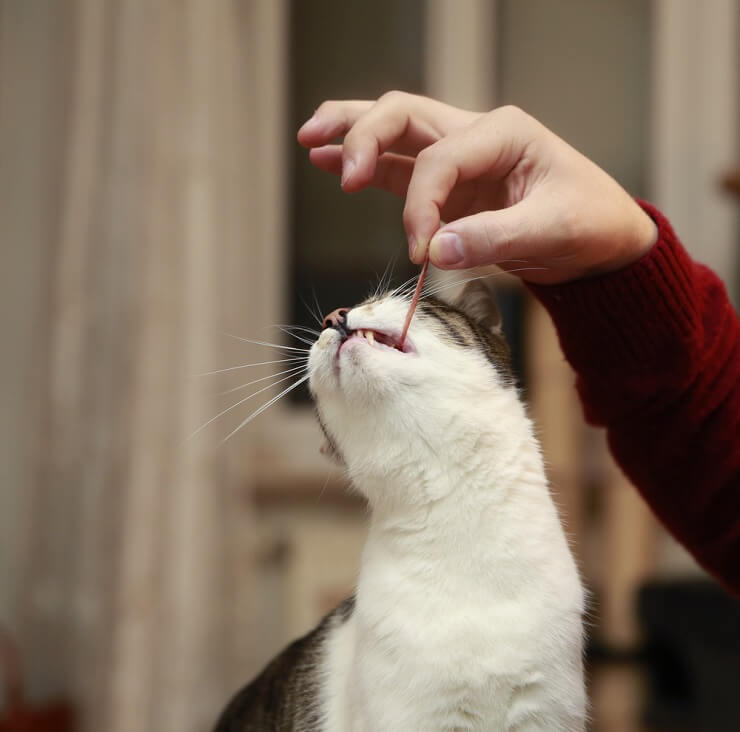
What to do if your cat eats too much bacon?
Cats will often do anything to eat, especially a hungry cat. For pet cats, as long as there is food, they will put down their dignity and aloofness, and instantly transform into a clingy, well-behaved and sensible cat. So try to store food out of your cat’s reach. To protect curious kittens, it is necessary to install cat-proof locks on cabinets. Don’t let your cat get onto the table while you’re cooking or eating.
During the holidays, extra caution is also required. Scented human foods are everywhere during the holidays, and many of them can be harmful to your cat’s stomach or even her body. In particular, cats’ desire for meat is much deeper than humans imagine. If the cat food they usually feed is not good, some cats will develop bad habits, such as stealing meat. If you notice a curious cat wolfing down a chunk of bacon from the table, contact your veterinarian immediately for a checkup. They need to monitor vital signs such as blood pressure, hydration and signs of sodium toxicity. Because it is really life-threatening for cats to ingest a large amount of sodium at one time.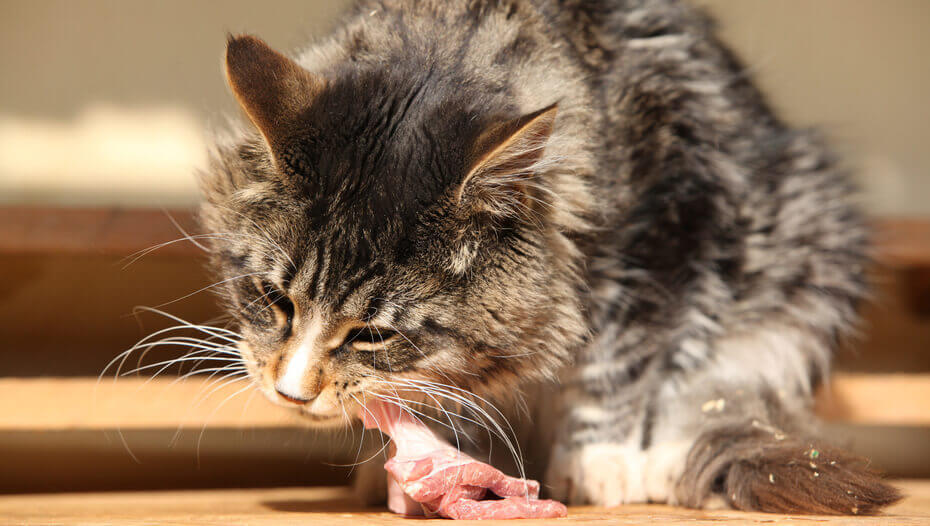
Although cats can eat bacon, the average bacon contains about 147 milligrams of salt per strip—which is way too much salt for cats to consume on a daily basis. You also have to watch the fat content. If an adult cat is not nursing, they need approximately 5 grams of fat in their daily diet. But a slice of bacon can contain up to 4 grams of fat. So don’t feed your cat too much bacon, and the same goes for turkey bacon.
